The war in Bosnia has been the focus of what seems to me a surprisingly large number of good films, from the farce of No Man’s Land to the drama of Welcome to Sarajevo. However, rather than the war itself, The Whistleblower concentrates on a repugnant coda to it – the international trafficking of child sex slaves for abuse, by a clientele of of mainly international peacekeepers and contractors, with their complicity and in some cases even direct participation.
Rachel Weisz plays Kathryn Bolkovac, the whistleblower of the title, an American police officer facing intertwined personal and professional challenges and sees working for “Democra Corp” (a pseudonym for the real-life Dyncorp military contractors) in Bosnia as a potential way out. Knowing little about Bosnia or peacekeeping, Bolkovic soon discovers the lawlessness that pervades the post-conflict Bosnia. The conflict between her moral outrage, the evil of the apparatus of trafficking, and the ugly realpolitik that enables it, forms the basis for the film’s plot.
The film is at its often agonizing best when it is focused on the story of Bolkovic and the teenage sex slaves she attempts to help. Weisz is convincing and the direction of co-writer Larysa Kondracki pulls comparatively few punches. When it moves into the realm of the diplomatic/corporate politics that protected the slaves’ UN enablers, it is perhaps less so. A story that, in real life, evolved over more than a year, seems compressed into weeks, and senior UN officials and the Democra boss are portrayed as cartoon besuited villains.
For all that, the film shines a very bright light on the twilight zone of impunity that surrounds the operations of private military contractors, and the repugnant consequences. If not surprising, it’s certainly still has the power to shock in the right hands, and the story is well told here.
The Whistleblower opens on September 29, but there’s a preview in Melbourne at the Kino Cinema tomorrow (Sunday) afternoon at 4:15. Full disclosure: yes, I got a free ticket from Hopscotch Films.
The Whistleblower review
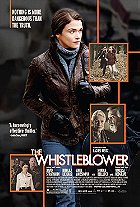 Posted : 13 years, 11 months ago on 15 March 2012 11:39
(A review of The Whistleblower)
Posted : 13 years, 11 months ago on 15 March 2012 11:39
(A review of The Whistleblower) 0 comments, Reply to this entry
0 comments, Reply to this entry
Last Train To I;stanbul review
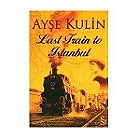 Posted : 13 years, 11 months ago on 11 March 2012 01:28
(A review of Last Train To I;stanbul)
Posted : 13 years, 11 months ago on 11 March 2012 01:28
(A review of Last Train To I;stanbul)Ayse Kulin has done a marvelous job in combining historical facts with strong feelings of people who pursuit freedom and love. I highly recommend this book..Very easy and enjoyable reading
 0 comments, Reply to this entry
0 comments, Reply to this entry
Islam, Globalization and Postmodernity review
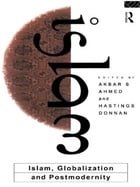 Posted : 13 years, 11 months ago on 10 March 2012 02:08
(A review of Islam, Globalization and Postmodernity)
Posted : 13 years, 11 months ago on 10 March 2012 02:08
(A review of Islam, Globalization and Postmodernity)It will be seen that there is material for divers tastes in this unusual, if eneven, contribution to Islamic Studies aka Social Anthropology, whether modern or postmodern. Your reviewer found it enjoyable and stimulating, and a good deal less opaque than its editors' introduction foreboded.' - Asian Affairs
`Including a Foreword by Ernest Gellner, this interesting volume contains 12 articles - two of them by Muslims - on various aspects of Islam, at a point where Muslims everywhere seem to face the peculiar risks and opportunites of what is considered the `post-modern' age.' I Muslim World Book Review
`this book describes both the general global processes now affecting Muslim communities and the ways those processes are shaped by specific cultural, political, and economic configurations.
`... gives essential insights into the complex marriage between Islam, state and society in an age of instant communications. Issues of race prejudice, gender, space, fundementalism and migration are all skilfully presented to give a new and enlightened perspective on Islam in the post modern age.
`Including a Foreword by Ernest Gellner, this interesting volume contains 12 articles - two of them by Muslims - on various aspects of Islam, at a point where Muslims everywhere seem to face the peculiar risks and opportunites of what is considered the `post-modern' age.' I Muslim World Book Review
`this book describes both the general global processes now affecting Muslim communities and the ways those processes are shaped by specific cultural, political, and economic configurations.
`... gives essential insights into the complex marriage between Islam, state and society in an age of instant communications. Issues of race prejudice, gender, space, fundementalism and migration are all skilfully presented to give a new and enlightened perspective on Islam in the post modern age.
 0 comments, Reply to this entry
0 comments, Reply to this entry
New Turkish Cinema: Belonging, Identity and Memory (Tauris World Cinema Series) review
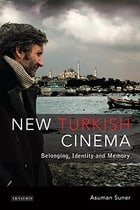 Posted : 13 years, 11 months ago on 10 March 2012 02:04
(A review of New Turkish Cinema: Belonging, Identity and Memory (Tauris World Cinema Series))
Posted : 13 years, 11 months ago on 10 March 2012 02:04
(A review of New Turkish Cinema: Belonging, Identity and Memory (Tauris World Cinema Series))An impressive introduction to new wave Turkish films...Suner is a good guide to a body of work that demands attention. The themes she identifies--"home" and identity--play out in a Turkey that is undergoing change and experiencing challenges from abroad and from "home." Here one learns not only about contemporary Turkish film but also, even without seeing the films, about Turkey. Recommended.
 0 comments, Reply to this entry
0 comments, Reply to this entry
Sufism, Music and Society in Turkey and the Middle East (Swedish Research Institute in Istanbul Transactions) review
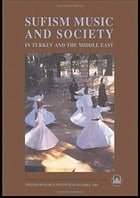 Posted : 13 years, 11 months ago on 10 March 2012 02:02
(A review of Sufism, Music and Society in Turkey and the Middle East (Swedish Research Institute in Istanbul Transactions))
Posted : 13 years, 11 months ago on 10 March 2012 02:02
(A review of Sufism, Music and Society in Turkey and the Middle East (Swedish Research Institute in Istanbul Transactions))With the collapse of the Ottoman empire after World War I and the restructure of Turkey with Ataturk as leader, the push to create a modern European-looking nation suffered the excesses of many revolutions and this include the attack on traditional "Oriental" music. Folk music was permitted primarily as a source of melodies for Western polytonal composition with mainly European orchestral instruments, in the manner of Bartok and Khachaturian. Sufi lodges were disbanded and with them their rites and music. This book discusses the history of musical forms in Turkey before, during, and now after the politically directed injunctions in a scholarly but readable anthology of papers presented at a conference in Istanbul in 1997. Included is a paper on the role of Jews and Jewish religious music in Ottoman art music. Another article of note is on Albania as another example of political interference on traditional musics. Key to the recent relaxation and influx of musical influences from neighboring Middle Eastern lands was mass communication: recordings, tapes, and the internet and the role of musicians themselves in wishing to expand and explore their idioms. This book provides a fine introduction to the complex of music, Islam, and society in one of the crossroads of the world.
 0 comments, Reply to this entry
0 comments, Reply to this entry
The New Turkey: The Quiet Revolution on the Edge of Europe review
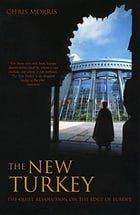 Posted : 13 years, 11 months ago on 10 March 2012 02:01
(A review of The New Turkey: The Quiet Revolution on the Edge of Europe)
Posted : 13 years, 11 months ago on 10 March 2012 02:01
(A review of The New Turkey: The Quiet Revolution on the Edge of Europe)For serious travelers to Turkey, this is an excellent history of, and commentary on past and present Turkey. As Americans, when we travel abroad, we know so little of the history, social life, politics, and culture of the countries we visit. This book prepares the serious traveler to know the background of Turkey. Although the history can be arduous reading at times, the background to current day Turkey is essential. It would like someone coming to America for the first time and unknowing of who George Washington or Abraham Lincoln were. Although they might enjoy the sites, it would be impossible for them to understand why we have monuments in our capital city for these men who formed our country. So too, we need to know about Turkey's founding and background.
 0 comments, Reply to this entry
0 comments, Reply to this entry
The New Cultural Climate in Turkey: Essays on Repression and Return review
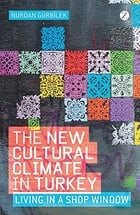 Posted : 13 years, 11 months ago on 10 March 2012 01:58
(A review of The New Cultural Climate in Turkey: Essays on Repression and Return)
Posted : 13 years, 11 months ago on 10 March 2012 01:58
(A review of The New Cultural Climate in Turkey: Essays on Repression and Return)Reading Nurdan Gurbilek's prose is like listening to a person you have just met and don't want to let go. She dazzles you with her account of cultural expression during the Turkish military dictatorship of the 1980's. How is it, she asks, that so much culture emerged in a time of political repression? In her answer she takes you to new shopping malls, talks to you about political dissent, describes new musical formations, stops in a cafe, and explains how literature portrays a belated condition. Gurbilek's vision is at once ethnographic and cosmopolitan, as she is able to reflect on the small metaphors of life while also referring to world literature and European philosophy. This is a Turkey alive and unadorned -- beyond the cliches of East and West, the veil and cappuccino, Islam and Pamuk. - Victoria Holbrook's translation sparkles like the morning rays falling on the Bosphorus.' - Prof Gregory Jusdanis, The Ohio State University 'In the The New Cultural Climate in Turkey, the literary and cultural critic Nurdan Gurbilek depicts an all-round picture of Turkey in the post-1980 era characterized by the latest military coup and its aftermath. From the exhibited corpse of a murdered pornography artist to the tamed and agonized picture of an anonymous child that decorates the walls of the Anatolian coffee houses, Gurbilek presents a gallery of portraits that reveal the cultural codes of a society that experienced-and is still experiencing-the impacts of a series of upheavals and radical transformations. Gurbilek's judicious and penetrating analysis illuminates the paradox of the emergence of diverse and multiple discourses in the midst of harsh, totalitarian measures put into effect by the military junta of the 1980 coup and its constitution designed to ensure the lasting surveillance of a militaristic regime. Her account of how, in the decades that followed that coup, Turkey discovered its own third worldA", its own self it had repressed to become modern-that is its Islamic face and its easternnessA" reads like an exemplary tale of the difficult road a nation must travel to attain political maturity. As Gurbilek shows how the voices of minorities, the emergence of an urban political culture, the demands of the politically oppressed, local beliefs, provincial tastes, and communitarian morals and manners surfaced to break apart the monolithic discourses that had prevailed since the founding of the Turkish Republic, she reads the works of the major Turkish novelists with new insights that highlight the hitherto unnnoticed points of subversiveness and resistance. She situates the Turkish novel within its own history and tradition at the same time as she explores its thematic correspondences and formal engagements with the western novel. Her skill in combining minute, analytic textual explication with erudite theoretical framing is sure to captivate a wide audience of scholar and student alike who are interested in Turkish literature.
 0 comments, Reply to this entry
0 comments, Reply to this entry
Western Music and Its Others: Difference, Representation, and Appropriation in Music review
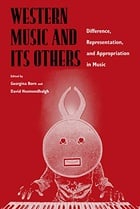 Posted : 13 years, 11 months ago on 10 March 2012 01:56
(A review of Western Music and Its Others: Difference, Representation, and Appropriation in Music)
Posted : 13 years, 11 months ago on 10 March 2012 01:56
(A review of Western Music and Its Others: Difference, Representation, and Appropriation in Music)When cultural-studies methods first appeared in musicology 15 years ago, they triggered a storm of polemics that sometimes overshadowed the important issues being raised. As the canon wars recede, however, scholars are finding it possible to focus on the concerns that led them to cultural criticism in the first place: the study of music and its political meanings. Western Music and Its Others brings together leading musicologists, ethnomusicologists, and specialists in film and popular music to explore the ways European and North American musicians have drawn on or identified themselves in tension with the musical practices of Others. In a series of essays ranging from examination of the Orientalist tropes of early 20th-century Modernists to the tangled claims for ownership in today's World Music, the authors in this collection greatly advance both our knowledge of specific case studies and our intellectual awareness of the complexity and urgency of these problems. A timely intervention that should help push music studies to the next level.
 0 comments, Reply to this entry
0 comments, Reply to this entry
The Republic of Love: Cultural Intimacy in Turkish Popular Music (Chicago Studies in Ethnomusicology) review
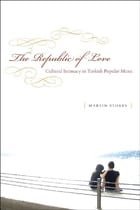 Posted : 13 years, 11 months ago on 10 March 2012 01:54
(A review of The Republic of Love: Cultural Intimacy in Turkish Popular Music (Chicago Studies in Ethnomusicology))
Posted : 13 years, 11 months ago on 10 March 2012 01:54
(A review of The Republic of Love: Cultural Intimacy in Turkish Popular Music (Chicago Studies in Ethnomusicology))With eloquent and engaging prose, Stokes analyzes the lives and music of three Turkish popular singers, delineating how they create public sentiments often quite distinct from (and sometimes in contradistinction to) those associated with the nation. In their sentimentality, their nostalgia, their gender ambiguity, and their themes of love, these artists model alternative ways of being a modern subject in post-Kemalist Turkey. Engaging the political complexities of the contemporary moment, with its strains of secularism and rising religiosity, Stokes contributes to theories of the emotions by demonstrating the importance of style, voice, and personality to the social construction of ‘public intimacy.’ Stokes delves deeply into the historical context of Turkey, but this book has ramifications far beyond the cases examined, breaking new ground in ethnomusicology, anthropology, and Middle Eastern studies. A beautiful and insightful achievement!
 0 comments, Reply to this entry
0 comments, Reply to this entry
Rethinking Modernity And National Identity In Turkey (Publications on the Near East) review
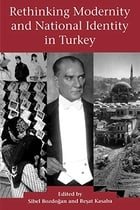 Posted : 13 years, 11 months ago on 10 March 2012 01:33
(A review of Rethinking Modernity And National Identity In Turkey (Publications on the Near East))
Posted : 13 years, 11 months ago on 10 March 2012 01:33
(A review of Rethinking Modernity And National Identity In Turkey (Publications on the Near East))"About time" was this reviewer's response to a collection of essays reconsidering the Atatürk experiment in secularism and Western orientation some sixty years on. Essays, almost all by Turks, offer high-quality though overly jargon-laden discussions of such topics as architecture, women, and scholarship.
The book's highlight is undoubtedly an unassuming 12-page essay, "The Quest for the Islamic Self within the Context of Modernity," by Nilüfer Göle, an associate professor of sociology at Boðaziçi University in Istanbul. Göle establishes the enormous cultural chasm between the Atatürkists' Westernizing ideals and what had come before, then shows how today's Islamists are trying "to maintain an identity separate from that of the dominant West." In other words, rather than see Islamists as products of failed economies, she shows the acutely important cultural dimension of their effort. To illustrate these points, she looks in more depth at the question of the body, especially the female body, and contrasts the Western notions of care and exposure with the thoroughly different Islamic concepts. Göle concludes by noting the paradox of Islamic pop music and fashion shows-two signs indicating the ubiquity of Western modernity.
All this should be self-evident, but it is not; most analysts of Islam pay too little attention to culture in their fascination with material well-being. Göle has succinctly shown why they are wrong.
The book's highlight is undoubtedly an unassuming 12-page essay, "The Quest for the Islamic Self within the Context of Modernity," by Nilüfer Göle, an associate professor of sociology at Boðaziçi University in Istanbul. Göle establishes the enormous cultural chasm between the Atatürkists' Westernizing ideals and what had come before, then shows how today's Islamists are trying "to maintain an identity separate from that of the dominant West." In other words, rather than see Islamists as products of failed economies, she shows the acutely important cultural dimension of their effort. To illustrate these points, she looks in more depth at the question of the body, especially the female body, and contrasts the Western notions of care and exposure with the thoroughly different Islamic concepts. Göle concludes by noting the paradox of Islamic pop music and fashion shows-two signs indicating the ubiquity of Western modernity.
All this should be self-evident, but it is not; most analysts of Islam pay too little attention to culture in their fascination with material well-being. Göle has succinctly shown why they are wrong.
 0 comments, Reply to this entry
0 comments, Reply to this entry
 Login
Login
 Home
Home 24 Lists
24 Lists 29 Reviews
29 Reviews Collections
Collections